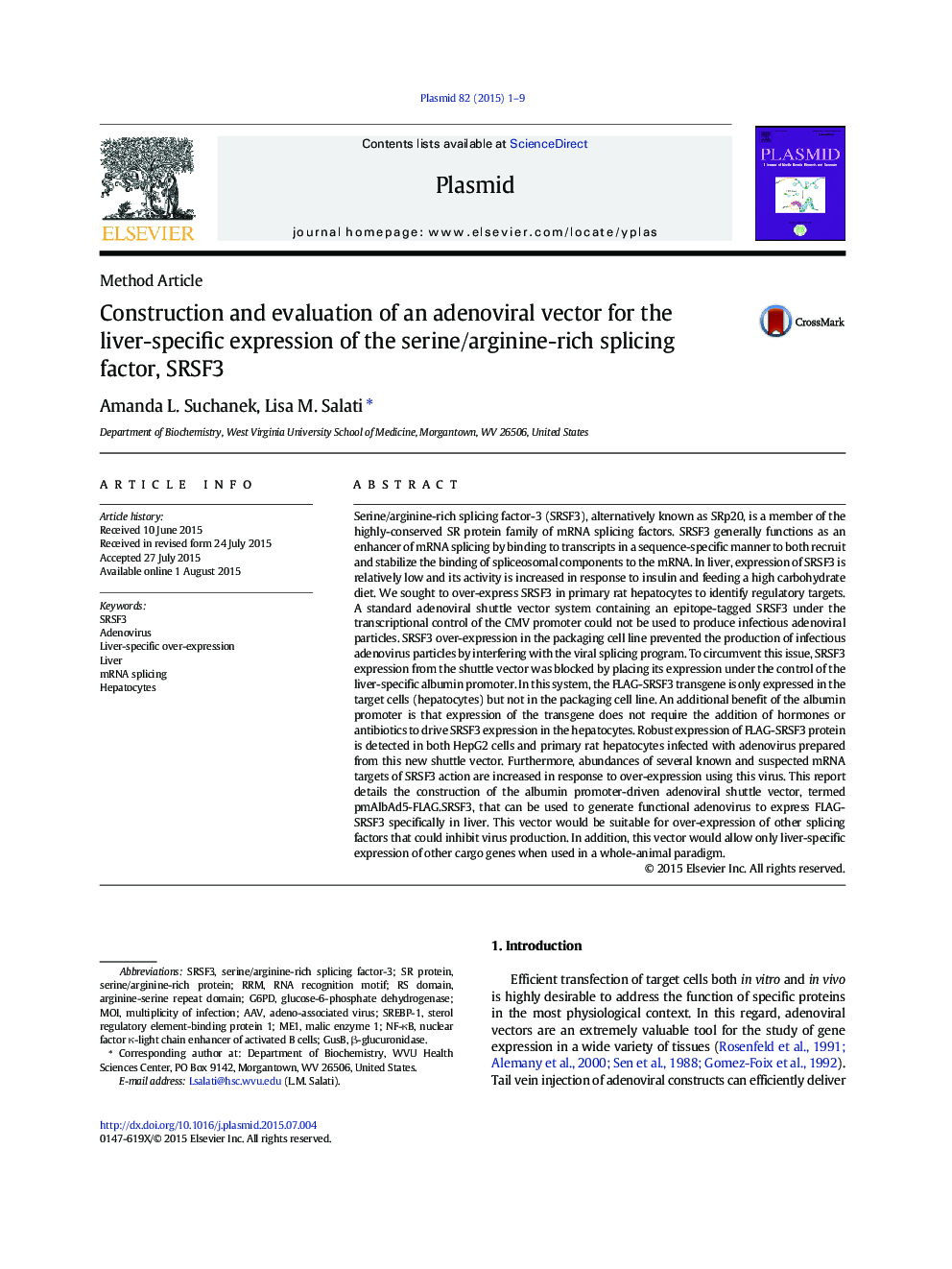| کد مقاله | کد نشریه | سال انتشار | مقاله انگلیسی | نسخه تمام متن |
|---|---|---|---|---|
| 2824059 | 1570339 | 2015 | 9 صفحه PDF | دانلود رایگان |

• Splicing factor SRSF3 blocks production of adenovirus in HEK-293 T cells.
• SRSF3 expression in HEK-293 T cells is blocked by using the albumin promoter.
• SRSF3-albumin adenovirus can be produced.
• Hepatocytes infected with the SRSF3-albumin adenovirus over-express SRSF3.
• SRSF3 over-expression increases the abundance of target RNAs.
Serine/arginine-rich splicing factor-3 (SRSF3), alternatively known as SRp20, is a member of the highly-conserved SR protein family of mRNA splicing factors. SRSF3 generally functions as an enhancer of mRNA splicing by binding to transcripts in a sequence-specific manner to both recruit and stabilize the binding of spliceosomal components to the mRNA. In liver, expression of SRSF3 is relatively low and its activity is increased in response to insulin and feeding a high carbohydrate diet. We sought to over-express SRSF3 in primary rat hepatocytes to identify regulatory targets. A standard adenoviral shuttle vector system containing an epitope-tagged SRSF3 under the transcriptional control of the CMV promoter could not be used to produce infectious adenoviral particles. SRSF3 over-expression in the packaging cell line prevented the production of infectious adenovirus particles by interfering with the viral splicing program. To circumvent this issue, SRSF3 expression from the shuttle vector was blocked by placing its expression under the control of the liver-specific albumin promoter. In this system, the FLAG-SRSF3 transgene is only expressed in the target cells (hepatocytes) but not in the packaging cell line. An additional benefit of the albumin promoter is that expression of the transgene does not require the addition of hormones or antibiotics to drive SRSF3 expression in the hepatocytes. Robust expression of FLAG-SRSF3 protein is detected in both HepG2 cells and primary rat hepatocytes infected with adenovirus prepared from this new shuttle vector. Furthermore, abundances of several known and suspected mRNA targets of SRSF3 action are increased in response to over-expression using this virus. This report details the construction of the albumin promoter-driven adenoviral shuttle vector, termed pmAlbAd5-FLAG.SRSF3, that can be used to generate functional adenovirus to express FLAG-SRSF3 specifically in liver. This vector would be suitable for over-expression of other splicing factors that could inhibit virus production. In addition, this vector would allow only liver-specific expression of other cargo genes when used in a whole-animal paradigm.
Journal: Plasmid - Volume 82, November 2015, Pages 1–9